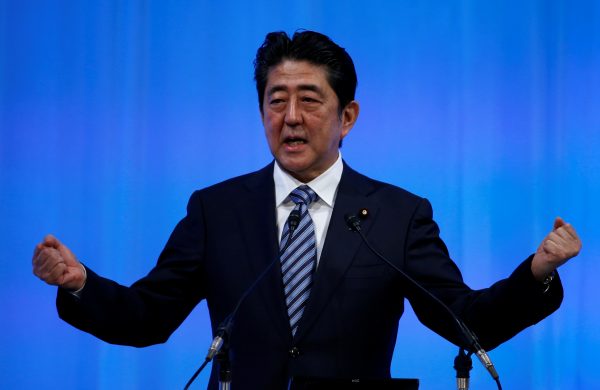The Democratic Party’s leader, Renho, (who goes by her first name alone) is almost universally viewed — including within the DP itself — as lacking the ability either to manage and manoeuvre among the party’s numerous factional groupings and personal antagonisms or attract the support of the voters, including those who are unhappy with Prime Minister Abe and his Liberal Democratic Party (LDP).
Any hope she had that being a successful female in an overwhelmingly male dominated political world would redound to her benefit was dashed by Yuriko Koike, a former LDP member and Japanese minister of defence who showed what a really tough woman could accomplish. She bolted the LDP to run against its chosen candidate for governor of Tokyo (and the DP supported candidate as well) and won. Koike did not stop there. She stood up to the LDP bosses in the Tokyo metropolitan assembly, has insisted on reductions in the cost that Tokyo will have to bear in hosting the 2020 Olympics, and she has refused to allow the transfer of the Tsukiji fish market to Toyosu until she is satisfied that there are not toxic chemicals in the soil there that could pose a health danger.
Compared to Yuriko Koike, Renho comes across as little more than a whinger. She complains about Defence Minister Inada not exercising stronger control over her ministry’s bureaucrats. She complains that Prime Minister Abe is not forthcoming about the reasons for pulling the Self Defence Forces out of the UN peacekeeping mission in South Sudan. She complains about a lot without offering any plausible alternatives.
And it is not just Renho. She is the symptom of the Democratic Party’s problems, not its cause. She almost certainly will be replaced soon but that will not do anything to increase the party’s popularity. The DP cannot make up its mind whether it is a second conservative party that offers moderate alternatives to LDP policies or a ‘progressive’ party that stands on the other side of an ideological divide.
Some of its leaders are moderate conservatives (and some not so moderate) who would be quite comfortable in the LDP. They are not simply because there is no district with an empty seat where they might be able to get the LDP’s endorsement. Even if they were invited to join the LDP they would have to go to the back of the queue in terms of getting important government or party appointments. So they stay in the DP where they have to coexist with politicians who come from a Socialist Party background and depend on the support of labour unions.
Some, probably most, of the party’s more conservative Diet members would bolt the party if they thought that would increase their chances of coming to power. They do not do so because they believe breaking up the DP would leave the LDP in an even more dominant position.
Since the DP does not have a clear idea of what policies it wants to propose to the public, it tries to define them in terms of what it thinks the public wants that the LDP is not delivering. But that is hard to do because the public does not know what policies it wants, either with regard to important domestic issues like pension and health insurance and labour market reform, or foreign policy and national security issues. Ambivalence is the operative word to describe public views on just about every issue of policy importance. But an ambivalent public does not want to support an ambivalent political party.
This only increases the temptation for the DP to downplay policy differences while expressing outrage over any hint of scandal that might turn public opinion against Prime Minister Abe and the LDP. The most recent example involves the alleged million-yen gift from Prime Minister Abe through his wife to the Moritomo Gakuen in Osaka for what was to have been its new primary school. The head of the school, Yasunori Kagoike, is known for right-wing views and for what was his fervent support of Abe until he and his wife denied ever making a contribution to the school. Abe’s popularity has suffered as a result of the controversy but it is still over 50 per cent. Even more importantly it has not led to any increase in popular support for the DP.
Japan’s political opposition is weaker than at any point since the end of the Second World War. There is no reason to believe it will get stronger anytime soon. Abe has a very good chance of gaining a third term to remain prime minister until 2021. If he were to leave office for some reason before then it is a good bet that his successor also will come from the LDP.
That will leave the talented and impressive politicians who are stuck in the DP unable to grasp control of the party, much less of the government. One-party dominance, especially when the LDP is as tightly controlled by the prime minister as it is now, is unhealthy for the operation of a democratic political system. But that is the system Japan has and in all likelihood will continue to have for some time to come.
Gerald Curtis is Burgess Professor Emeritus of Political Science at Columbia University.


Dear Gerry, I perfectly agree with you!
The only possibility of improving the present state of Japanese poor political situation will be the appearance of New National Party, which will defeat LDP in near future.
Many Japanese expect it, but it will take time,,,
If you could suggest or help us how we can support and proceed such new trends, we would be happy!
Look forward to seeing “the next chapter” of your article.